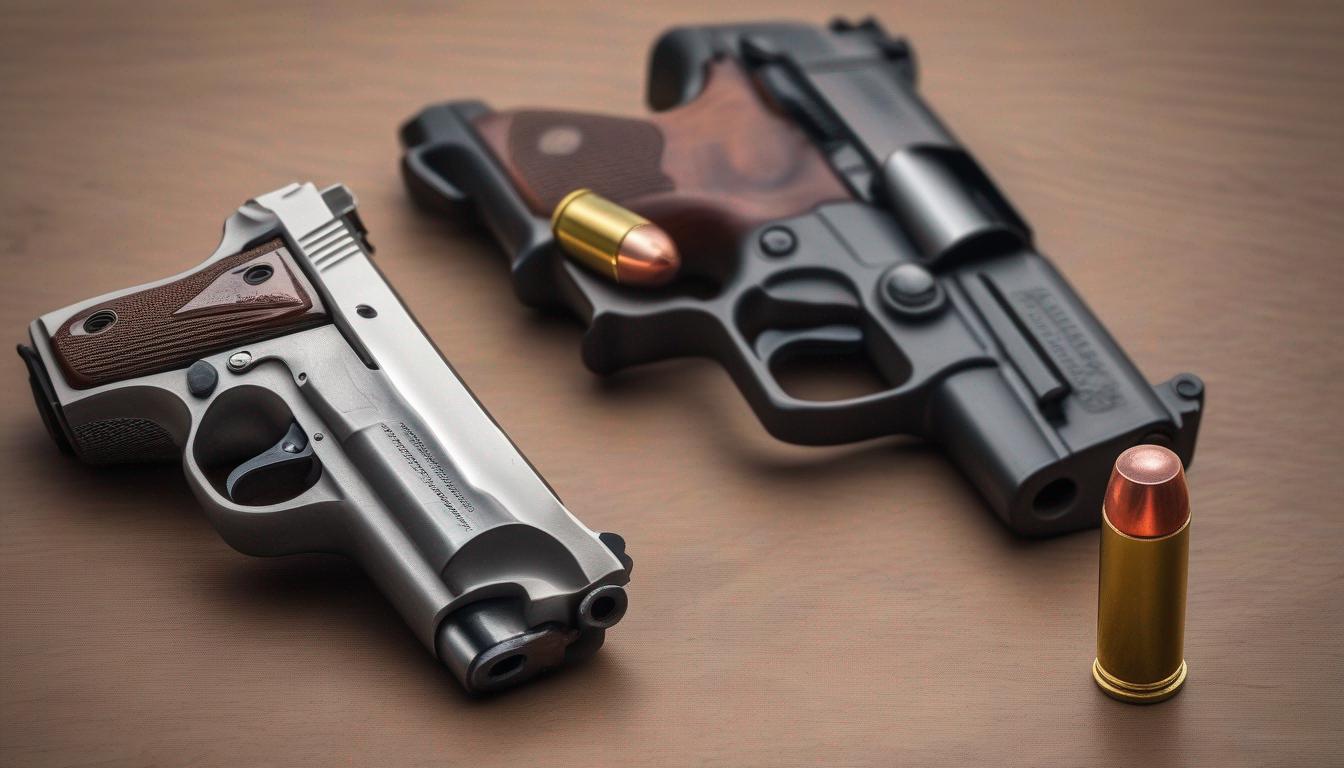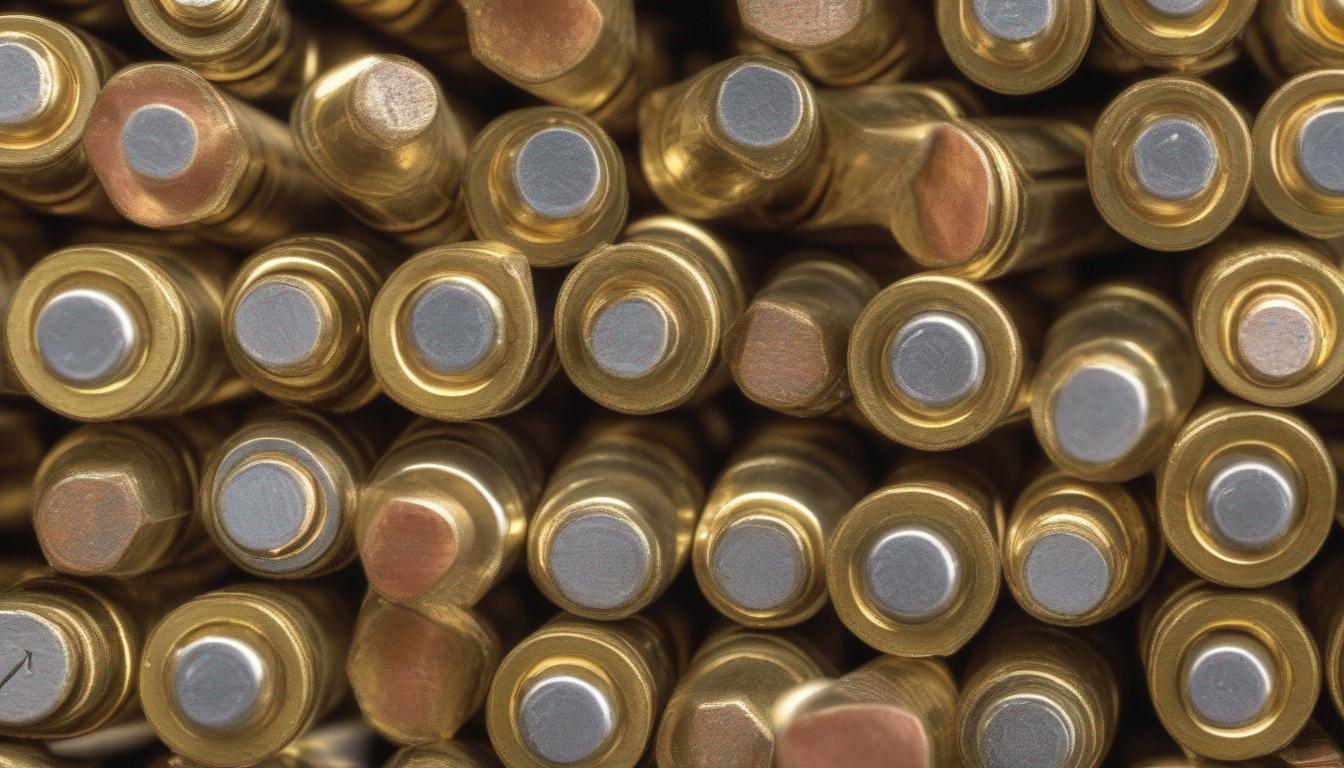Key Differences Between .38 Special and 9mm Ammunition in Self-Defense
.38 Special vs 9mm for Self-Defense: A Detailed Comparison
.38 Special and 9mm ammunition are two of the most popular choices for self-defense purposes. As a responsible gun owner, it’s crucial to understand the nuances between these two calibers to make an informed decision based on your specific needs and preferences. Let’s delve into the key differences between .38 Special and 9mm ammunition in the context of self-defense.
Ballistic Performance
When comparing .38 Special and 9mm ammunition for self-defense, one of the critical factors to consider is ballistic performance. The 9mm round generally has higher muzzle energy and velocity compared to the .38 Special, making it slightly more powerful. This higher velocity results in better expansion and deeper penetration, which are crucial factors in stopping a threat effectively.
On the other hand, the .38 Special, although less powerful than the 9mm, is known for its manageable recoil, making it easier to shoot accurately, especially for beginners or those with limited hand strength. The moderate recoil of the .38 Special can enhance shot placement, which is vital in self-defense situations where every shot counts.
Magazine Capacity and Firearm Options
Another significant difference between .38 Special and 9mm ammunition lies in magazine capacity and firearm options. Due to its smaller size, the 9mm cartridge can typically be accommodated in firearms with higher capacities. This means that 9mm handguns usually have a larger ammo capacity compared to .38 Special revolvers, which are commonly limited to 5-6 rounds.
The higher capacity of 9mm firearms can provide an advantage in self-defense scenarios where quick and multiple shots may be necessary. Additionally, the market offers a wider variety of 9mm handguns in various sizes and styles, allowing gun owners to choose a firearm that suits their preferences and needs.
Recoil Management and Shootability
Recoil management and shootability are crucial factors to consider when selecting an ammunition type for self-defense. The .38 Special is renowned for its mild recoil, making it an excellent choice for shooters who prioritize comfort and ease of shooting. The manageable recoil of the .38 Special enables quick follow-up shots and increased accuracy, particularly in high-stress situations.
Conversely, the 9mm round, while more powerful, tends to have slightly higher recoil compared to the .38 Special. However, modern 9mm handguns are designed to mitigate recoil and improve shootability, allowing shooters to deliver rapid and accurate shots with practice.
Final Verdict
Both .38 Special and 9mm ammunition have their unique advantages and considerations for self-defense. The 9mm round offers higher velocity and better ballistic performance, making it a popular choice for many gun owners. On the other hand, the .38 Special provides manageable recoil and enhanced shootability, which can be advantageous for shooters seeking ease of use and accuracy.
Ultimately, the decision between .38 Special and 9mm ammunition for self-defense should be based on individual preferences, shooting abilities, and comfort levels. It’s recommended to test both calibers at the range, consider factors like recoil, capacity, and ballistic performance, and choose the one that best aligns with your self-defense needs and skill set.
Ballistics and Impact: Comparing Stopping Power of .38 Special and 9mm for Personal Protection
In the realm of self-defense firearms, the debate between .38 Special and 9mm handguns has long been a topic of discussion among gun enthusiasts and personal protection advocates. Both calibers have their strengths and weaknesses, making it essential for potential gun owners to understand the ballistics and impact of these rounds before making a decision on which to use for personal protection.
The .38 Special: A Classic Choice
The .38 Special has been a popular choice for concealed carry and self-defense for decades. It is known for its manageable recoil, making it easier for shooters to handle, especially those with less experience. The typical .38 Special round is usually a bit heavier than the 9mm, which can result in slightly more felt recoil when fired.
One of the critical factors that make the .38 Special an attractive option for self-defense is its proven track record. Law enforcement agencies and civilians alike have used this caliber effectively in real-life self-defense situations. The .38 Special cartridge is known for its reliability and effectiveness when it comes to stopping attackers.
The 9mm: Modern Versatility
On the other hand, the 9mm has gained immense popularity in recent years, becoming one of the most widely used calibers for both law enforcement and civilians. The 9mm offers higher magazine capacity compared to the .38 Special, allowing for more rounds to be carried for personal protection.
In terms of ballistics, the 9mm generally has higher muzzle energy and velocity compared to the .38 Special, which can translate to better performance in terms of penetration and expansion. The 9mm is also usually more affordable and easier to find than the .38 Special, making it a practical choice for many gun owners.
Stopping Power: A Critical Factor
When it comes to self-defense, stopping power is a crucial consideration. Stopping power refers to the ability of a bullet to incapacitate a threat effectively. Both the .38 Special and 9mm are capable of delivering sufficient stopping power, but there are differences in how they achieve this.
While the .38 Special may have slightly less muzzle energy compared to the 9mm, it is still a formidable round for self-defense. The key to stopping power lies not just in the caliber itself but also in shot placement and the type of ammunition used. Hollow point bullets are often recommended for self-defense purposes as they are designed to expand upon impact, creating larger wound channels and increasing stopping power.
Final Thoughts
Ultimately, the choice between .38 Special and 9mm for self-defense comes down to personal preference, comfort, and intended use. Both calibers have proven track records and can be effective for personal protection when used appropriately. It is crucial for gun owners to train regularly and become proficient with their chosen firearm to ensure they can use it effectively in high-stress situations. Whether you opt for the classic .38 Special or the modern 9mm, selecting the right firearm and practicing responsible gun ownership are paramount for personal safety.
Key Takeaway:
When considering the choice between .38 Special and 9mm ammunition for self-defense, it is crucial to understand the key differences in their ballistics and impact. The .38 Special round is known for its long history of effective use in law enforcement and personal defense scenarios. With its larger caliber and heavier bullet, the .38 Special offers respectable stopping power and manageable recoil, making it a popular choice among those seeking reliable self-defense ammunition.
On the other hand, the 9mm round has gained widespread popularity for its higher capacity, faster muzzle velocity, and improved ballistic performance compared to the .38 Special. While the 9mm round may have slightly less recoil than the .38 Special, it still provides adequate stopping power and penetration for self-defense situations. Additionally, the availability and affordability of 9mm ammunition make it a practical choice for many gun owners.
When it comes to ballistics and impact, both .38 Special and 9mm ammunition have their strengths and weaknesses. The .38 Special rounds typically have larger, heavier bullets that deliver strong impact energy upon hitting the target. This can be advantageous in situations where deep penetration is needed to reach vital organs and effectively neutralize a threat.
On the other hand, the 9mm rounds offer higher muzzle velocity and energy, resulting in better expansion and penetration capabilities. This can lead to more effective energy transfer upon impact, causing greater tissue damage and increasing the likelihood of stopping an assailant quickly. Additionally, the higher capacity of most 9mm handguns allows for more rounds to be carried, providing greater firepower in self-defense scenarios.
Both .38 Special and 9mm ammunition can be viable options for self-defense, each with its own set of advantages and considerations. Ultimately, the choice between the two will depend on individual preferences, shooting proficiency, and intended use. It is important for gun owners to test various types of ammunition to determine which one offers the best balance of stopping power, accuracy, and recoil management for their personal protection needs.
Conclusion
When it comes to selecting between the .38 Special and the 9mm for self-defense, understanding the key differences in their ballistics and impact on stopping power is crucial. Both ammunitions have their strengths and weaknesses, making it essential to consider various factors before making a choice for personal protection.
In terms of ballistics and stopping power, the 9mm generally offers higher muzzle velocity and energy compared to the .38 Special. This higher velocity results in better penetration and expansion upon impact, which can be vital in self-defense situations. Additionally, the 9mm allows for higher capacity in most firearms, providing more rounds to neutralize a threat if needed.
On the other hand, the .38 Special is known for its manageable recoil, making it easier to shoot accurately, especially for those who may struggle with larger calibers like the 9mm. The .38 Special also tends to have a larger bullet diameter, which may lead to slightly better stopping power and wound channels in some scenarios.
It’s important to consider factors like firearm compatibility, personal shooting proficiency, and individual preferences when choosing between these two popular calibers for self-defense. While the 9mm stands out for its higher capacity and velocity, the .38 Special offers a balance of manageable recoil and stopping power, making it a reliable choice for those who prioritize accuracy and ease of shooting.
Ultimately, the decision between the .38 Special and 9mm ammo for self-defense boils down to personal comfort, proficiency, and situational needs. Some may prefer the versatility and higher capacity of the 9mm, while others may opt for the manageable recoil and ease of shooting of the .38 Special. Whichever option you choose, proper training, shot placement, and adherence to firearm safety practices are paramount in any self-defense scenario.
The debate between the .38 Special and 9mm for self-defense will continue among firearms enthusiasts and experts. Each ammunition offers unique characteristics that cater to different preferences and needs. Understanding the key differences in ballistics, impact, and overall performance is essential in making an informed decision based on individual requirements and comfort levels. Remember, the best self-defense firearm is one that you can handle confidently and shoot accurately when faced with a threatening situation.


